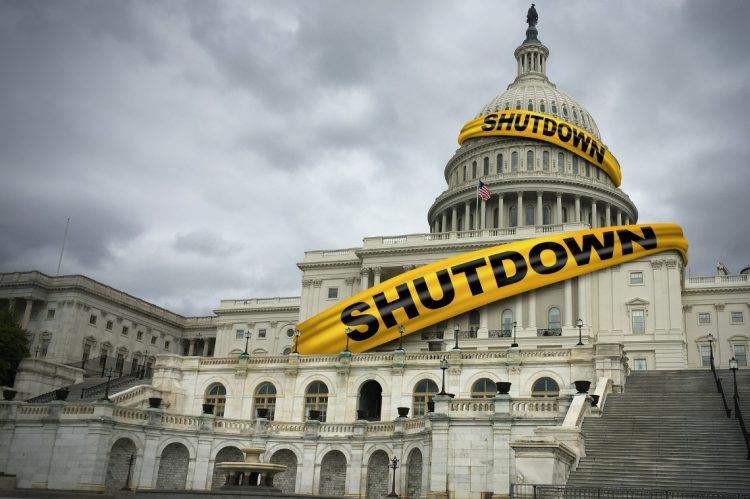If Congress is unable to agree on the provisions of a Continuing Resolution (CR) to fund the federal government by September 30, 2023, the result will be a partial shutdown of some government operations of interest to the real estate industry. A summary of the impact on selected agencies is provided below.
Environmental Protection Agency
Under EPA’s shutdown plan, most employees will be furloughed. This will affect various regulatory programs and compliance activities, such as wetlands determinations under the 404 program and enforcement of the lead-based paint disclosure and renovation, repair, and painting programs.
Federal Housing Administration
HUD’s Contingency Plan states that FHA will endorse new loans in the Single Family Mortgage Loan Program except for HECM and Title 1 loans. It will not make new commitments in the Multi-family Program during the shutdown. FHA will maintain operational activities, including paying claims and collecting premiums. FHA Contractors managing the REO/HUD Homes portfolio can continue to operate. Some delays with FHA processing may occur due to short staffing. FHA updated policies to allow borrowers to obtain private flood insurance. Should the NFIP lapse, FHA borrowers can obtain flood insurance from the private market.
Government Sponsored Enterprises
During previous shutdowns, Fannie Mae and Freddie Mac have continued normal operations since they are not reliant on appropriated funds. There are four key areas of consideration: verification of employment, tax transcripts, verification of social security number, and proof of flood insurance coverage application.
- Verification of Employment
- Tax Transcripts: Freddie Mac requires all borrowers to sign a 4506T (Request for Transcript of Tax Return) request form prior to close, but the request does not have to be processed prior to close. Fannie Mae requires the same unless the borrower’s income can be verified through Fannie Mae’s proprietary Desktop Underwriter verification system, in which case no 4506T is required. During past government shutdowns, the IRS suspended the issuance of tax return transcripts.
- Verification of Social Security Number: Sometimes, social security numbers are disputed and must be verified. Fannie Mae allowed lenders to verify the numbers prior to delivery in the 2018 shutdown as a precaution but did not allow delivery if the number was not confirmed. Freddie Mac does not require verification of a social security number.
Internal Revenue Service
While the IRS has not yet released its shutdown contingency plan, in past government shutdowns the agency has consistently held that its employees can remain on the job during shutdowns only if their duties protect the government. For example, during the 2018 closure, the roughly 12 percent of employees who were required to report to work could open mail only in search of checks payable to the government and were not allowed to answer taxpayer phone calls, issue tax refunds, release liens and levies or perform most other taxpayer services.
National Flood Insurance Program (NFIP)
During a lapse of authority, the NFIP may not sell new or renewal flood insurance policies. Existing NFIP policies will remain in effect until their expiration date, and claims will continue to be paid until funds run out. NFIP policies may be assigned from seller to buyer during a lapse, and most lending regulators have issued guidance providing flexibility. Private market flood insurance is also an option. For more information, please see NAR’s Frequently Asked Questions (FAQs) document on NFIP authorizations.
Rural Housing Programs
The U.S. Department of Agriculture will not issue new rural housing Direct Loans or Guaranteed Loans. Scheduled closings of Direct Loans will not occur. Scheduled closings of Guaranteed Loans without the guarantee previously issued would be closed at the lender’s own risk.
Veterans Affairs
The U.S. Department of Veterans Affairs has not yet released its contingency plan for a government shutdown. However, in prior shutdowns, the Department of Veterans Affairs Loan Guarantee Service remained operational but with a limited staff. It is possible to expect similar delays as the Federal Housing Administration.
Small Business Administration
During the shutdown, the SBA will not process new loans or approve routine small-business loans, including the CDC 504 Loan Program and the 7(a) Loan Program; however, the agency will continue to close previously approved CDC 504 Loans and carry out limited loan servicing and liquidation activities. The Office of Advocacy will also cease operations. The SBA will continue to issue Disaster Loans should the need arise and will continue processing Paycheck Protection Program (PPP) loan forgiveness applications.
Visa Programs – EB-5 and H-2B
Although the EB-5 Immigrant Investor Regional Center Program receives government funding, its current operations are funded and authorized through September 30, 2027. Due to its reliance on some independent funding sources, the EB-5 Immigrant Investor Regional Center Program will continue to operate during this most recent shutdown. However, application times may be delayed because other agencies, such as the State Department, will shutdown and result in staffing shortages and additional delays. Investors may continue to file I-526 petitions and timely responses to USCIS Requests for Evidence (RFE) and Notices of Intent to Deny (NOID). In addition, investors may continue to prepare and file I-829 petitions.
The processing of labor condition applications for various work visas, including the H-2B visa, will be shut down. Similarly, the processing of prevailing wage, labor certification, and other DOL Office of Foreign Labor Certification (OFLC) operations will cease. DOL/OFLC personnel will not be available to respond to inquiries, and web-based systems for filing, status checks, and uploading documents, among other features, will be offline. Deadlines related to DOL applications and procedures are typically modified.
Delays in Agency Regulations
As a result of the government running only essential services, other agency actions, such as publishing proposed and final rules, are expected to be delayed. For example, the Financial Crimes Enforcement Network (FinCEN) is expected to release a notice of proposed rulemaking on anti-money laundering regulations for the real estate sector, which could potentially include new disclosure rules for real estate professionals to file in certain all cash transactions.
For more information, visit https://www.nar.realtor/.











